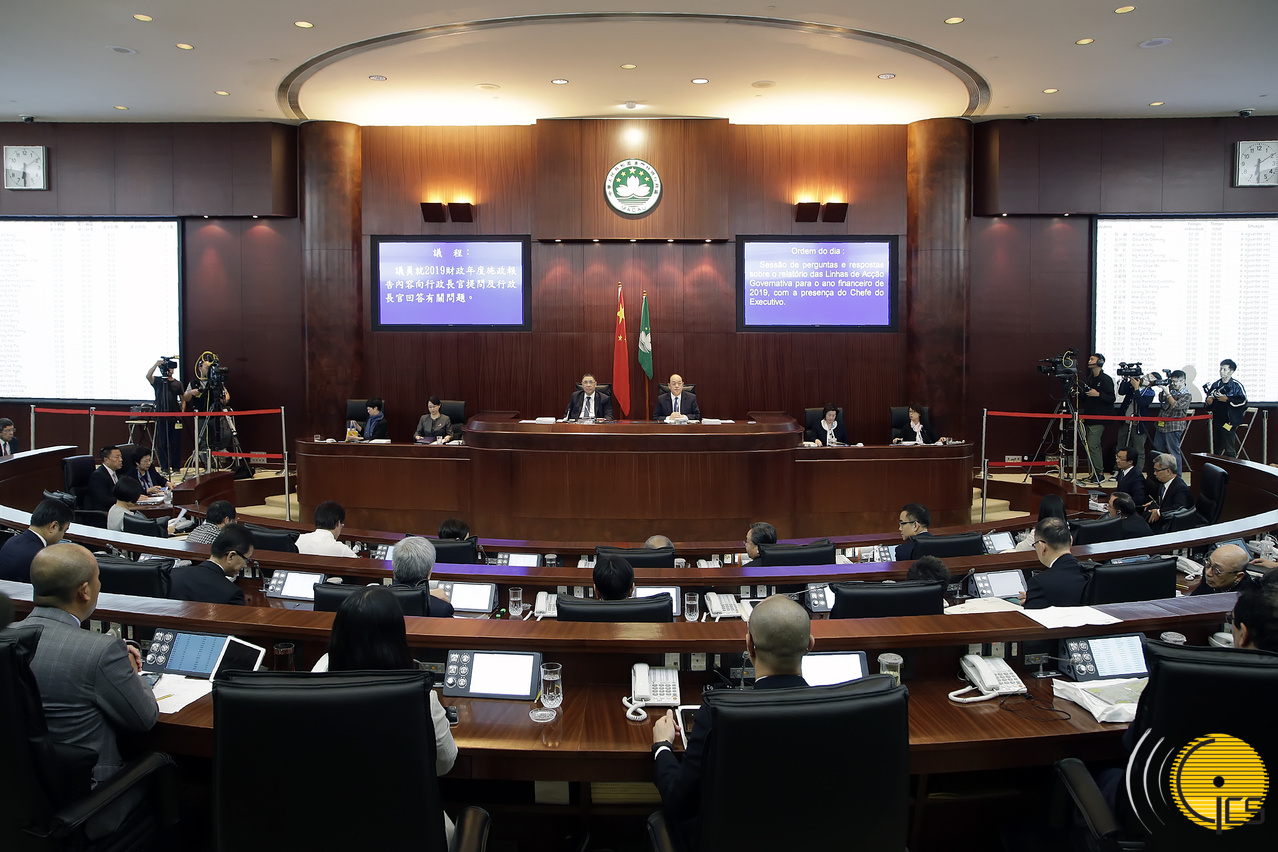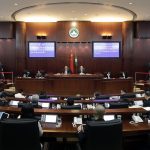 The Chief Executive, Mr Chui Sai On, a question-and-answer session at the Legislative Assembly.
The Chief Executive, Mr Chui Sai On, a question-and-answer session at the Legislative Assembly.
The Chief Executive, Mr Chui Sai On, reiterated today the Government’s firm commitment to protecting the rights of employees. He pledged amendments to the Labour Relations Law would be aimed only at generating better conditions for employees.
Speaking in a question-and-answer session at the Legislative Assembly concerning the 2019 Policy Address, Mr Chui said the Government welcomed the receipt of further opinions regarding a proposal for revising – under the Labour Relations Law – the framework for the enjoyment of mandatory holidays.
The suggested amendment would allow an employee – in agreement with the employer – to choose to enjoy the break from work anticipated under three of Macao’s mandatory holidays, by taking the equivalent break time during other, non-mandatory, holiday periods. The mandatory holidays to which such swap rights would apply were: the Lunar New Year holiday, Cheng Ming Festival, the day after the Mid-Autumn Festival, and Chong Yeong Festival.
In response to questions from some Legislative Assembly members, Mr Chui said the Government aimed to refer the proposal to the Standing Council on Social Concerted Action, for further discussion. This was in order to explore a framework that balanced the interests of employers with those of employees.
Mr Chui noted employee rights were of widespread interest to the community. Often, there was divergence of opinion between employees and employers. The Government nonetheless had to find a balance between protecting employees and addressing the reasonable expectations of employers.
During today’s Legislative Assembly session, the Chief Executive also shared information on the Government’s plans for addressing some of the city’s transportation issues.
Potential solutions for transport issues in the Northern District had been encompassed in a framework that includes – among other things – the “Medium-to-long-term Plan for Usage and Development of the Waters of the Macao Special Administrative Region (2016-2036)”.
Mr Chui outlined measures to improve the flow of the currently-dense traffic near Rotunda da Amizade, the only road link to the Macao checkpoint serving the Hong Kong-Zhuhai-Macao Bridge.
The Government intended to build a new flyover connecting roads near the roundabout – namely Avenida do Nordeste and Avenida da Ponte da Amizade – to reclamation area Zone A, and thus to the Macao checkpoint for the Bridge.
One of exits for the proposed flyover would be located on the land plot formerly assigned to the Pearl Horizon project, Mr Chui said.
Meanwhile, the Government would prepare additional coping measures in case of traffic accidents occurring at times of heavy traffic flow in the area.
Mr Chui added that the Government had been closely monitoring local traffic flow following the launch of the Hong Kong-Zhuhai-Macao Bridge in late October, and would formulate a proposal to rationalise such flow. The authorities from the three places served by the Bridge would discuss traffic flow issues, he added.
As for a fourth Macao peninsula-Taipa road link, Mr Chui said the final design had been completed. It was expected that tendering processes would be initiated by year-end, with construction commencing in 2019.
The Chief Executive had delivered on Thursday (15 November) the Policy Address for the Fiscal Year of 2019, entitled “Seize Opportunities for Balanced Development”.
On Friday Mr Chui took questions from a total of 31 Legislative Assembly members. Topics discussed included: Macao’s integration in the Guangdong-Hong Kong-Macao Greater Bay Area; the financial reserve; welfare measures; long-term mechanisms relating to people’s livelihoods; management of land resources; overall housing policies; urban renewal schemes; youth affairs; and tourism development.


